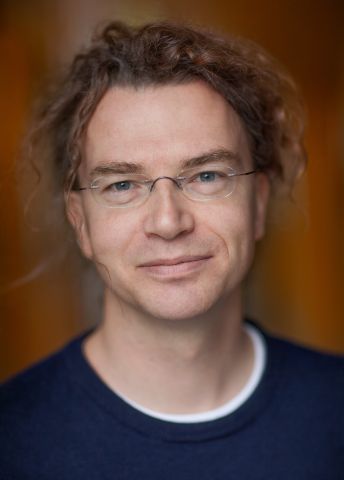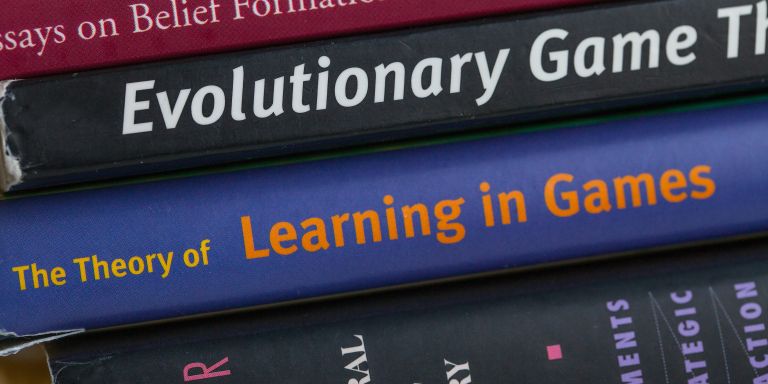
Erik Mohlin
Dr in Economics
Wallenberg Academy Fellow 2016
Institution:
Lund University
Research field:
Evolutionary game theory, learning and limited rationality


Wallenberg Academy Fellow 2016
Institution:
Lund University
Research field:
Evolutionary game theory, learning and limited rationality
When we do something, whatever it is, something drives us to do it, and perhaps we also have goals we want to achieve. Whether or not we succeed depends on how we act, but often also on how other people act. The same applies in interactions between companies, organizations or entire states.
“Game theory is a mathematically formulated theory of human interaction. It attempts to bring clarity to the jumble of interdependences between your actions and mine, and it can be used whether the motivation is altruism, ill-will, pure self-interest or something else. Parts of the theory can even be applied to animal behavior,” Mohlin explains. He works at Lund University Department of Economics.
But the theoretical models are often highly simplified. They frequently describe choice situations, with clearly defined alternative courses of action, the identity of those interacting, and roughly how the players involved perceive the likelihood of various consequences.
This is something that Mohlin wants to problematize. He wants to develop the theory by incorporating the way players see their surroundings, the way they simplify the world around them, and the social norms they are influenced by.
He concedes that this is fairly abstract, but gives an example: Someone walking along the sidewalk who passes a person begging is expected to consider whether they should give the beggar some money. But the social norm does not require a person passing by on the opposite side of the street to consider giving money. People can be seen to exploit this by crossing the street before they get to the beggar.
“They choose a situation where nothing is expected of them. But imagine if you don’t cross the street – you walk toward the beggar. Imagine the beggar gets up and gathers his things before you get there. Do you give money, or has some decisive, albeit elusive, factor changed? Game theory needs to be developed so it can explain a wider range of phenomena of this kind. I think that both game theory and economics would be better if they paid more attention to how we simplify and categorize the world around us,” Mohlin says.
Mohlin and his colleagues are not the first to research in this field, but their aim is to formulate a more uniform theory than the present one. He describes it as an extension of the change that took place in economics in the 1990s, “when economists realized that people are not only selfish”.
“As long as economists confined themselves almost exclusively to markets, it was natural that game theory was mainly about how we reacted to the price of a product, for example. But these days economists do almost anything. When they developed an interest in questions that were traditionally the realm of psychologists and sociologists, game theory needed to be able to describe norms, altruism, justice and much more.”
It may sound as though one needs to be a psychologist to research into social norms and people’s idea of reality. And Mohlin does indeed read literature in the fields of psychology and cognitive science as part of the project.
“But you also have to realize that it’s about different things. It’s one thing for a psychologist to map all possible processes that help us to understand the social world around us. It’s another for an economist to see which of the processes play a part in the economic or social outcome.”
Mohlin hopes the methods he is developing will make it easier to communicate between the disciplines, so that economics can derive more benefit from psychology and sociology, and vice versa. He describes it as a kind of translation project:
“And if we succeed, we will develop analytical tools to make the explanations and predictions of game theory more accurate. Hopefully, it will then be easier to understand the world around us.”
When Mohlin went to university he chose first to study philosophy. After a while he transferred to Stockholm School of Economics, inspired by a friend already studying there. He thought it would be easier to get a job as an economist than as a philosopher. And studying economics also appealed to him because of his interest in politics.
“This was in the late 1990s, when all political discussions ended with ‘we can’t afford it’. I wanted to understand this: is it really true that we can’t afford it? My impression then was that politics was very much a question of economics. And it still is.”
“First and foremost, becoming a Wallenberg Academy Fellow represents financial security. As a social scientist and senior lecturer, I can spend up to 80 percent of my time teaching. This makes it very hard to find time for research. The grant enables me to halve my teaching time for five years, so during that period I won’t have to worry about a lack of funding.”
Both Mohlin’s parents were academics. His father was a professor, so the possibility of research occurred to him at a young age. Mohlin describes the work he does now as model-building – a creative process in which he pieces together various situations like a Lego house to see how they can be understood.
“It’s an exhilarating process. Research applications are important, but I personally have a tendency to dwell on the fundamental questions – the underlying principles. And as a researcher I’m entitled to do so.”
Text Lisa Kirsebom
Translation Maxwell Arding
Photo Magnus Bergström